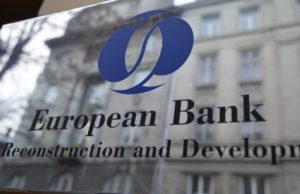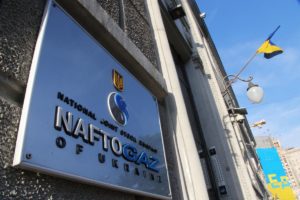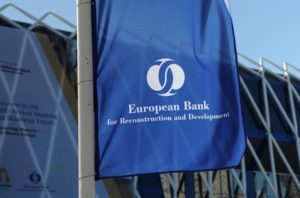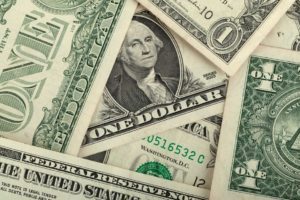
The European Bank for Reconstruction and Development (EBRD) and the European Investment Bank (EIB) are ready to provide a targeted loan in the amount of EUR 900 million to Ukraine to develop the road sector, acting Head of the State Automobile Roads Agency of Ukraine (Ukravtodor) Slawomir Nowak has said. “I have already held negotiations with the EBRD and the EIB. A new credit line will be opened for Ukraine in the amount of EUR 900 million,” he said.
According to Nowak, the negotiations were very difficult, but trust in the state and its managers ultimately allowed for a positive solution.
“Within the framework of this new credit line, we will also offer to finance the Weight-in-Motion system at the next stage,” the acting chief of Ukravtodor said.
Nowak also said that he recommended that Minister of Infrastructure Vladyslav Krykliy eararks funds from the Road Fund allocated for road safety to the installation of the Weight-in-Motion (WiM) system.
As reported, Ukravtodor launched in test mode the first two WiM points on the Kyiv-Chop highway.
On September 11, the Rada adopted at second reading a bill allowing automatic recording of violations during weight monitoring on roads.
Weight-in-Motion (WiM) systems will fulfill a function of pre-selection for inspectors of the State Service of Ukraine for Transport Safety until a law allowing automatic weight and weight control on roads is passed.
Ukravtodor previously planned in October to launch the first six WiM points at the entrances to Kyiv. In general, it is planned to install up to 100 WiM points.

The European Bank for Reconstruction and Development (EBRD) will finance the modernization of infrastructure of JSC Ukrzaliznytsia via the purchase of eurobonds worth almost $100 million, Ukrzaliznytsia Board Chairman Yevhen Kravtsov wrote on his Facebook page. “Today we signed the framework agreement: the EBRD finances the Ukrzaliznytsia infrastructure project via an additional issue of eurobonds. We received up to $100 million exclusively for infrastructure modernization. Against the background of permanent headline-grabbing tenders for the purchase of anchoring beams, switches this is a signal to the market: tenders will be held in accordance with EBRD rules,” Kravtsov wrote.
He said that the funds raised will go exclusively for the purchase of materials. Ukrzaliznytsia will carry out the work on its own.
The head of Ukrzaliznytsia recalled that over the past two years, the company’s attention has been focused on updating the rolling stock and locomotive fleet.
“Now it is the turn of the railroad track. Firstly, it is safety, secondly, we will increase the throughput, and thirdly, it is a possibility of increasing speed in some sections for both freight and passenger trains, thereby reducing energy-consuming stops,” Kravtsov said.
He also thanked the EBRD and the new Cabinet of Ministers team for helping to implement this agreement.

The board of directors of the European Bank for Reconstruction and Development (EBRD) has approved the issuance of up to $120 million to one of the largest Ukrainian agricultural groups, Kernel, on two projects within a syndicated loan to finance working capital.
According to information on the EBRD’s website, the decision was made on September 4.
Within the framework of one project, in particular, Kernel may receive up to $80 million to finance working capital, which is associated with the procurement, storage, transportation and sale of grains for export.
The total project cost is $300 million.
In addition, under another project, the EBRD intends to issue up to $40 million in the form of participation in a syndicated loan to finance Kernel’s working capital, which is related to the purchase, storage, processing, transportation of oilseeds and vegetable oil, as well as sale for export.
The cost of the entire project is estimated at $390 million.
Kernel is the world’s largest producer and exporter of sunflower oil, the leading producer and supplier of agricultural goods from the Black Sea region to the world markets.

The European Bank for Reconstruction and Development (EBRD) has acquired one-fifth (for EUR 120 million) of five-year eurobonds issued by Naftogaz in the amount of EUR 600 million, the bank has said.
“The eurobond proceeds are issued for general corporate purposes including the financing of gas purchases. The bank’s financing will be used exclusively for gas purchases. The transaction will contribute to Ukraine’s energy security, ensuring procurement of natural gas for the upcoming 2019/2020 winter heating season in the country,” the bank said on its website.
As reported, on July 12 Naftogaz Ukrainy placed two tranches of eurobonds denominated in euros and U.S. dollars: EUR 600 million for five years at 7.125% and $335 million at 7.375% per annum for three years. The anchor investors of the issue were the EBRD and a number of U.S. investors. The initial benchmark yield of dollar eurobonds was about 7.75%, eurobonds in euros about 7.5%.
Earlier, Naftogaz announced the need to urgently raise funds for the accumulation of increased volume of gas in storage facilities for winter – 20 billion cubic meters to be ready for a possible termination of transit by Gazprom from January 1, 2020 and strengthen its position in negotiations with the Russian gas monopoly.

The European Bank for Reconstruction and Development (EBRD) will provide investment up to EUR 149 million to Ukrenergo National Energy Company to acquire up to 26 new transformers and carry out the automation and upgrade of 12 high-voltage substations. “The investment will help Ukrenergo upgrade its key transmission infrastructure required for the synchronization with the European electricity networks. It will also assist Ukraine in aligning its legal framework and operational practices with the EU Third Energy Package,” reads an EBRD press release.
According to the bank, Ukrenergo will use the 15-year sovereign-guaranteed loan to acquire up to 26 new transformers and carry out the automation and upgrade of 12 high-voltage substations in key locations of the Ukrainian transmission network. The loan will also contribute to the annual reduction of CO2 emissions by 20,500 tonnes.
Besides, the investment will strengthen Ukrenergo’s capacity to accommodate the growing share of renewables in the Ukrainian grid, with an increasing share of wind and solar power. “A flexible, smart grid will be key to the sustainable electricity sector of the future,” said the report.
The EBRD financing is also promoting the commercialization and institutional development of Ukrenergo through the implementation of a comprehensive Corporate Governance Action Plan and robust procurement standards.
As reported, the total cost of Ukrenergo modernization project is EUR 198.2 million, including EUR 49.2 million of own funds of Ukrenergo and EUR 149 million to be provided by the EBRD.
The EBRD is the largest international financial investor in Ukraine. Since the start of its operations in the country in 1993, the Bank has made a cumulative commitment of almost €13.6 billion through 432 projects in the country.

The European Bank for Reconstruction and Development (EBRD) could issue up to $80 million to Kernel, one of the largest Ukrainian agricultural groups, within the framework of a syndicated loan to finance working capital, which is associated with the procurement, storage, transportation and sale of grains for export.
According to the information on the bank’s website, the total cost of the project is $300 million (consists of the existing and increased working capital financing).
The decision on the project can be made on September 4, 2019. Now the project is at the concept review stage.
“The provision of up to $40 million in the form of participation in a syndicated senior secured revolving credit facility to finance working capital needs of Kernel Group. Working capital financing is associated with the procurement, storage, processing, transportation of oilseeds and vegetable oil products, and export sale,” the report on the website says.
The cost of the entire project is estimated at $390 million.
The project will be considered on September 4 of the current year. It is now at the study stage.
Kernel is the world’s largest producer and exporter of sunflower oil, a leading manufacturer and supplier of agricultural products from the Black Sea region.